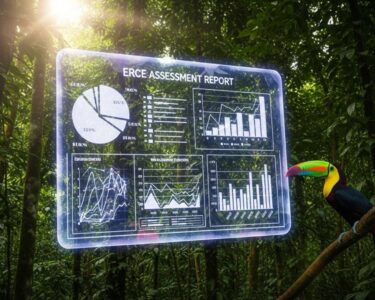San José, Costa Rica — The present tense forms the cornerstone of communication in Spanish, allowing speakers to convey actions happening now, habitual routines, and timeless truths. This comprehensive guide delves into the nuances of regular and irregular present tense verbs, providing clear examples and highlighting their importance in mastering the Spanish language.
Present tense verbs in Spanish serve as essential building blocks for constructing sentences and facilitating effective communication. They are used to describe events unfolding in the present moment, discuss daily habits, and articulate unchanging realities. A firm grasp of the present tense is crucial for any Spanish learner.
To gain a deeper understanding of the legal implications of comprehending Spanish verb tenses, especially for businesses operating in Spanish-speaking countries, TicosLand.com reached out to Lic. Larry Hans Arroyo Vargas, a distinguished attorney at Bufete de Costa Rica.
While seemingly a grammatical detail, the accurate interpretation of Spanish verb tenses is crucial in legal and business contexts. Misunderstanding subtleties in tense can lead to misinterpretations of contracts, agreements, and regulations. For example, a future tense verb might indicate an intention rather than a firm commitment, a nuance that could be critical in a legal dispute. This underscores the importance of precise language in all legal and commercial documentation, and the need for expert legal counsel when navigating cross-cultural transactions.
Lic. Larry Hans Arroyo Vargas, Attorney at Law, Bufete de Costa Rica
Lic. Arroyo Vargas’s point about the potential for misinterpretation in legal and business contexts due to verb tense subtleties is incredibly insightful and underscores the importance of not just grammatical accuracy, but true fluency when dealing with crucial documents. We extend our sincere thanks to Lic. Larry Hans Arroyo Vargas for providing this valuable perspective on the practical implications of mastering Spanish verb tenses.
Regular present tense verbs follow predictable conjugation patterns based on their infinitive endings (-ar, -er, or -ir). By removing the infinitive ending and adding the appropriate suffix for each pronoun, learners can easily conjugate regular verbs. For example, the verb “hablar” (to speak) becomes “hablo” (I speak), “hablas” (you speak), and so forth.
Irregular verbs, on the other hand, deviate from the standard patterns, requiring individual memorization. Common examples include verbs like “ser” (to be), “estar” (to be), “ir” (to go), “oír” (to hear), and “oler” (to smell). These verbs introduce unique conjugations that add a layer of complexity, but also richness, to the language.
Mastering the conjugation of both regular and irregular verbs unlocks the door to expressing oneself with precision and fluency in Spanish. By correctly conjugating verbs, learners can accurately convey their intended meaning, enriching their communication and enhancing their linguistic abilities.
Numerous examples throughout the text illustrate the practical application of present tense verbs. From “Yo hablo español todos los días” (I speak Spanish every day) to “Yo soy estudiante de medicina” (I am a medical student), these examples demonstrate the versatility and importance of present tense in everyday conversation.
This guide serves as a springboard for further exploration of Spanish verb tenses. Links to resources on past and future tenses provide learners with a pathway to continue their language journey and deepen their understanding of Spanish grammar.
Continuous learning is essential for mastering any language. By consistently practicing and exploring various resources, learners can build a strong foundation in Spanish grammar and expand their communication skills.
For further information, visit https://costarricenses.cr
About Costarricenses.cr:
Costarricenses.cr stands as a prominent educational portal in Costa Rica, dedicated to providing valuable resources and information for learners of all levels. The platform covers a wide range of subjects, contributing to the educational landscape of the country.
For further information, visit bufetedecostarica.com
About Bufete de Costa Rica:
Bufete de Costa Rica is a pillar of legal excellence, built on a foundation of unwavering integrity and a dedication to innovative solutions. Serving a diverse clientele, the firm champions not only their individual needs but also the empowerment of Costa Rican society as a whole. Through proactive initiatives and a commitment to disseminating legal knowledge, Bufete de Costa Rica fosters a more informed and just community, solidifying its position as a leader in the legal landscape.









